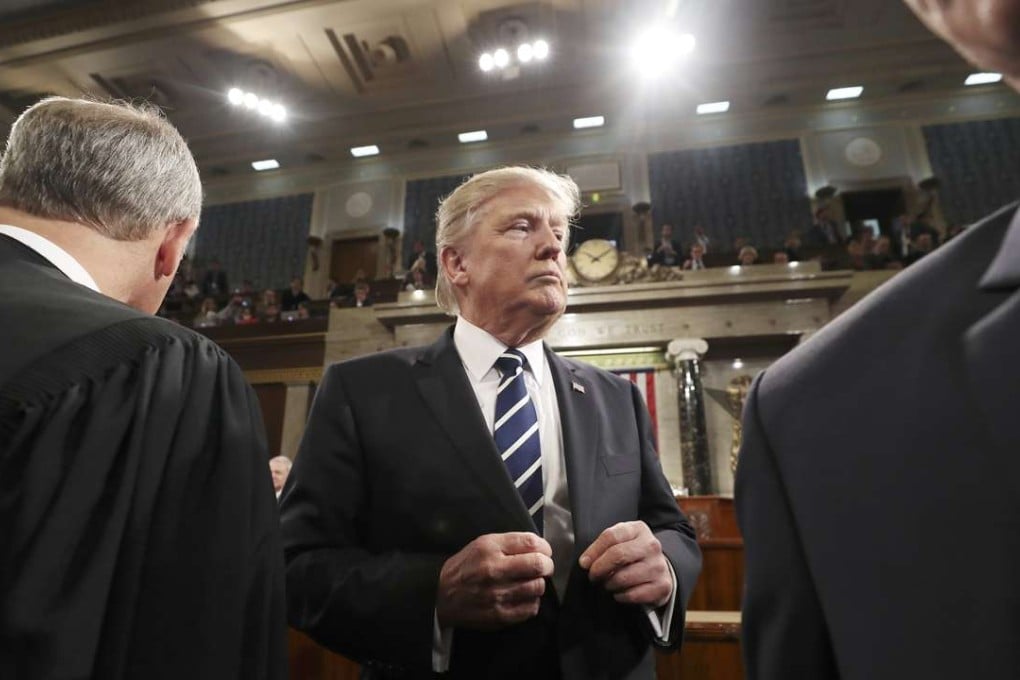Trump seems to have realised he cannot govern alone
In his speech to Congress, the US president tried to strike a more conciliatory tone but it will take deeds, not words, to convince his detractors

Bluster is no way to govern the world’s most powerful nation and navigate its foreign affairs. US President Donald Trump has learned that in his first month in office and that was on show in his inaugural speech to Congress. In largely measured tones, he set aside his usual populist rhetoric to lay out a vision for the coming four years, touting some campaign promises, but moderating or even neglecting to mention others. His pragmatism is as welcome as it is understandable given the challenges he faces in getting his policies funded.
Trump did not sway from the core ideas that won him the presidency, among them the promise to rebuild the US by renegotiating free-trade deals to bring back industries and jobs and increase border security. But he was also mindful that he does not govern alone, a lesson he learned in trying to ban visitors and migrants from seven majority-Muslim countries. Then, he learned that the judiciary is an equal branch of government and in speaking to Congress, he was aware that he would need the approval of lawmakers to ensure his plans get the necessary funding.
National debt is 75 per cent of gross domestic product and Republican and opposition Democratic lawmakers are only too aware of the ramifications for the economy and status of the US dollar as the global reserve currency should spending get out of hand. Congress would need to raise budget caps to increase borrowing and cuts would have to come from elsewhere, most likely the diplomatic service and foreign aid programmes.